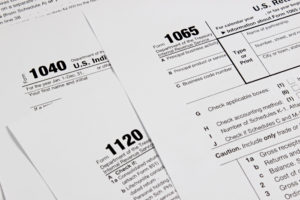 Over the last three months, COVID-19 has grown to affect almost every aspect of daily life. From shelter-in-place mandates to the millions of workers currently out of work, we’ve all felt the impact.
Over the last three months, COVID-19 has grown to affect almost every aspect of daily life. From shelter-in-place mandates to the millions of workers currently out of work, we’ve all felt the impact.
As a small business ourselves, we understand that this is a time of financial crisis for so many similarly-sized businesses across the country. If you are a small business owner looking for answers, please keep an eye on this blog. We will continue to provide you with in-depth analysis of the changing situation and what it means for you and your business.
So far, we’ve provided a look at COVID-19 related state tax relief and what state taxes may look like after the crisis subsides. (Check out our recent blog on some sales tax relief being offered by the state of California.) We’ll now dive into federal tax relief and how you can expect to be impacted.
The CARES Act, signed into law by President Trump on March 27, offers $2.1 trillion in aid to individuals and businesses.
As part of the act, employers may claim a 50 percent tax credit on the first $10,000 of qualified wages paid to employees from March 13 to December 31, 2020. Qualified wages include wages of employees who were either furloughed or whose hours have been reduced due to COVID-19.
Employers must either experience a full or partial suspension due to governmental actions related to COVID-19, or experience a 50 percent decline in gross receipts during a calendar quarter when compared to the same quarter in the previous year.
For businesses with over 100 employees, the credit can only be applied towards payroll of employees who are unable to work due to a business suspension, or lack of business.
However, it’s important to note that employers may not receive the above tax credit if they participate in the Paycheck Protection Program, as outlined below.
Also, under the CARES Act, $349 billion in COVID-19 relief funds have been set aside for small businesses.
As of April 3, small businesses and sole proprietorships can apply for and receive forgivable loans in order to meet payroll and certain other expenses through an existing SBA lender. Independent contractors and self-employed individuals will be able to apply for the same program starting April 10.
According to the U.S. Department of the Treasury, all businesses, including nonprofits, veterans’ organizations and Tribal business concerns with 500 or fewer employees can apply. In certain industries, businesses with more than 500 employees will be able to apply if they meet SBA employee-based size standards.
The program is open until June 30, so it’s important to begin the application process as soon as possible. To apply, you will need to complete the Paycheck Protection Program loan application and submit it with required documentation to an approved lender that can process your application by June 30.
The Treasury Department has said funds from these loans can be used towards:
- Payroll costs, including benefits
- Interest on mortgage obligations, incurred before February 15, 2020
- Rent, under lease agreements in force before February 15, 2020
- Utilities, for which service began before February 15, 2020
Loan amounts are applicable for forgiveness as long as the funds are only used to cover payroll costs, mortgage interest, rent and utility costs over the eight-week period the loan is made, AND if employee and compensation levels are maintained. At this point, it is anticipated that not more than 25 percent of the forgiven amount may be for non-payroll costs.
More information on the size of available loans and forgiveness can be found on the Treasury Department website.
Note that as we’ve been researching this program and speaking to bankers, a few nuances come to light. If you bank with a large institution (Bank of America, Chase, and Wells Fargo, to name a few), you must generally apply online and the determination of funding is not made at the branch level. Also, most banks recommend that you first apply with the bank you generally use for checking or other lending. Because of the high demand for these loans, banks are expected to cater to their existing customers first.
As small business too, we are particularly interested in the PPP loan as it provides short term funding for payroll and rent, and as mentioned above, is likely to be largely forgivable.
As the economic impact of COVID-19 continues to evolve, we are keeping track of daily updates and will keep you informed.
If you have specific questions about COVID-19 federal tax relief, CARES or the Paycheck Protection Program, and of course, state tax matters, please contact us today and we can clarify any aspects you’re trying to navigate.
In the meantime, from the Miles Consulting family to yours, we wish you continued safety and health during these turbulent times.


















